A portrait of the mythical band Bembeya Jazz, which contributed to the heyday of Sekou Touré’s cultural revolution in Guinea. Created in 1961 in the heart of the rainforest, Bembeya Jazz rapidly became modern Africa’s greatest orchestra. 50 years later, immerse yourself in the history of a legend that livers on!
Related Movies
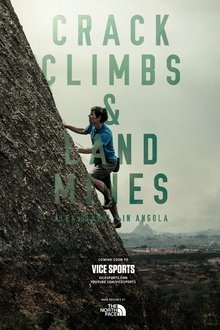
Crack Climbs and Land Mines, Alex Honnold in Angola (2015)
Alex Honnold is the most accomplished free climber in the world. Angola is a southwest African country that recently emerged from 27 years of bloody civil war. What brings together these strange bedfellows you ask? Some of the most epic unclimbed rocks in the world, and a community needing help to diffuse the hidden land mines leftover from the conflict. (Plus a shadowy local hotel magnate, but we'll get into that later). This is Alex Honnold in Angola, for one of the most unique adventures of his storied climbing career this far.

What Difference Does It Make? (2014)
A documentary that explores the challenges that a life in music can bring.
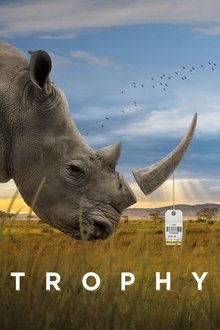
Trophy (2017)
This in-depth look into the powerhouse industries of big-game hunting, breeding and wildlife conservation in the U.S. and Africa unravels the complex consequences of treating animals as commodities.

The Panafrican Festival in Algiers (1969)
Festival panafricain d'Alger is a documentary by William Klein of the music and dance festival held 40 years ago in the streets and in venues all across Algiers. Klein follows the preparations, the rehearsals, the concerts… He blends images of interviews made to writers and advocates of the freedom movements with stock images, thus allowing him to touch on such matters as colonialism, neocolonialism, colonial exploitation, the struggles and battles of the revolutionary movements for Independence.
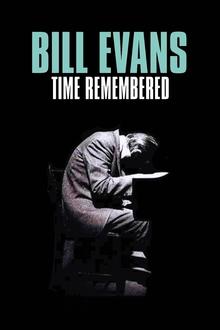
Bill Evans Time Remembered (2015)
A biographical film featuring the music and times of Bill Evans with interviews from Tony Bennett, Jack Dejohnette, Billy Taylor, Paul Motian, Jon Hendricks, Orin Keepnews, Bobby Brookmeyer, Pat Evans and more, including family and friends who knew Bill Evans well.

The Great Green Wall (2020)
An epic journey along Africa's Great Green Wall — an ambitious vision to grow a wall of trees stretching across the entire continent to fight against increasing drought, desertification and climate change.

When We Were Kings (1996)
It's 1974. Muhammad Ali is 32 and thought by many to be past his prime. George Foreman is ten years younger and the heavyweight champion of the world. Promoter Don King wants to make a name for himself and offers both fighters five million dollars apiece to fight one another, and when they accept, King has only to come up with the money. He finds a willing backer in Mobutu Sese Suko, the dictator of Zaire, and the "Rumble in the Jungle" is set, including a musical festival featuring some of America's top black performers, like James Brown and B.B. King.

Mabu: Saving the Secret Forest (2024)
We follow a team of scientists on a gruelling expedition into a remote rainforest in Mozambique. They're hoping to prove that Mount Mabu's animals and insects are unique and in need of official protection.

Africa Rising (2019)
How African artists have spread African culture all over the world, especially music, since the harsh years of decolonization, trying to offer a nicer portrait of this amazing continent, historically known for tragic subjects, such as slavery, famine, war and political chaos.
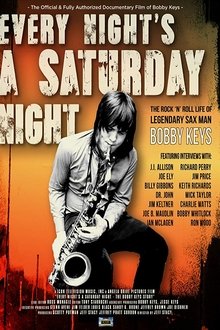
Every Night's a Saturday Night (2018)
The Life & Times of Bobby Keys ... decades-long Sax player with The Rolling Stones, best friend to Keith Richards, and session player with John Lennon, Eric Clapton, Delaney & Bonnie, George Harrison, Dr. John, Joe Cocker, Harry Nilsson, Ian McLagan, Keith Moon, Etta James, Ronnie Wood, Sheryl Crow, Ringo Starr, Joe Ely, Warren Zevon, Billy Preston, Donovan, Marvin Gaye, Lynyrd Skynyrd, Carly Simon, Barbra Streisand, John Hiatt, Yoko Ono and B.B. King.
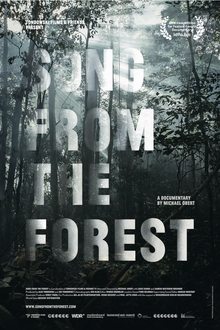
Song from the Forest (2014)
25 years ago, Louis Sarno, an American, heard a song on the radio and followed its melody into the Central Africa Jungle and stayed. He than recorded over 1000 hours of original BaAka music. Now he is part of the BaAka community and raises his pygmy son, Samedi. Fulfilling an old promise, Louis takes Samedi to America. On this journey Louis realizes he is not part of this globalized world anymore but globalization has also arrived in the rainforest. The BaAka depend on Louis for their survival. Father and son return to the melodies of the jungle but the question remains: How much longer will the songs of the forest be heard?

The Case of the Three Sided Dream (2014)
The documentary film on the life and legacy of Rahsaan Roland Kirk – a one of a kind musician, personality, activist and windmill slayer who despite being blind, becoming paralyzed, and facing America’s racial injustices - did not relent.
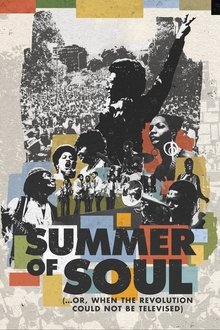
Summer of Soul (...Or, When the Revolution Could Not Be Televised) (2021)
During the same summer as Woodstock, over 300,000 people attended the Harlem Cultural Festival, celebrating African American music and culture, and promoting Black pride and unity. The footage from the festival sat in a basement, unseen for over 50 years, keeping this incredible event in America's history lost — until now.
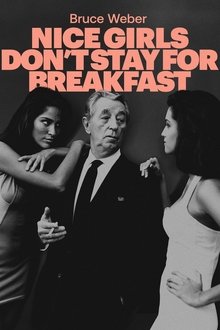
Nice Girls Don't Stay for Breakfast (2019)
In the late 1990s, iconic photographer Bruce Weber barely managed to convince legendary actor Robert Mitchum (1917-97) to let himself be filmed simply hanging out with friends, telling anecdotes from his life and recording jazz standards.

African Styles (2023)
Throughout the continent, discovery of a new generation of independent self learners who share a common passion for African culture and aesthetics and a strong ethic in opposition to the huge fast fashion industry.
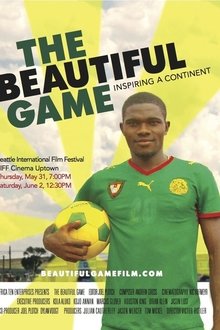
The Beautiful Game (2012)
Across Africa, people are using soccer to lift themselves up, to create change in their communities and to pave the way for progress. "The Beautiful Game" follows several unforgettable Africans who are beating the odds on and off the pitch.
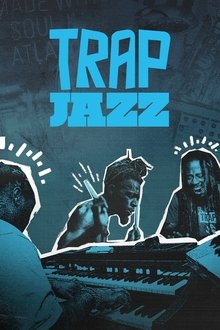
Trap Jazz (2023)
Atlanta musicians behind some of the biggest names in music embark on an uncertain journey into the spotlight with a new genre of music that fuses trap music with jazz.
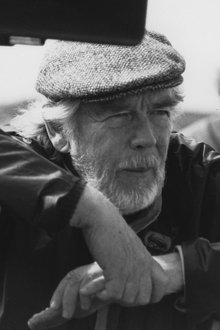
The Vocation (1974)
Sven Nykvist, best known as Ingmar Bergman cinematographer, made this film as a tribute to his father who was a missionary in Kongo in the early 20th century. The story of his father Gustav Natanael Nykvist is told through his own photos, letters, and films. Director & cinematographer: Sven Nykvist. Narrators in the English dubbed version: Liv Ullmann & Sean Connery. Produced by Ingmar Bergman (Cinematograph AB). Digitally restored in 2022.
